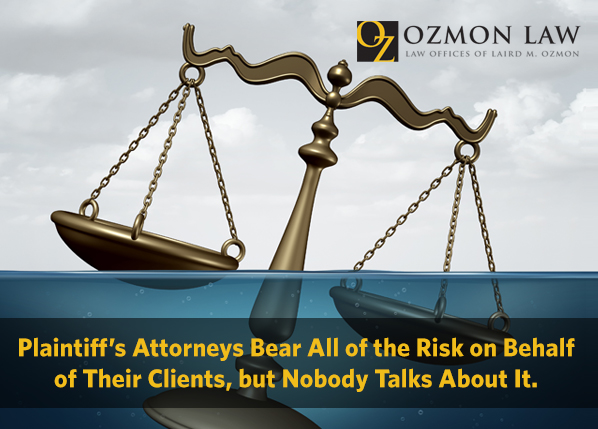
The narrative about lawyers in the past few decades has certainly not been a fairytale or the stuff of fictional heroes like Perry Mason or Atticus Finch. Many attorneys think we have the O.J. Simpson defense team to thank for the abysmal reputation of our profession. Yet in the final analysis, like anything, the bad ones get the press and the good ones press on.
When I finally settled on walking in my father’s footsteps and opening my own practice, I knew all of the risks and had fully considered them. The biggest risk, that I would pour everything I had into a case on behalf of a plaintiff, and recover nothing, did not daunt me. In my view, it is what makes my profession, being a plaintiff’s attorney, a noble one.
Few people fully understand the contingency fee system that gives every injured person access to justice regardless of their socio-economic status. Under the law and the applicable Code of Professional Ethics, attorneys who represent injured victims may take a contingency fee that is generally between 33 and 40%. If the attorney does not recover for the plaintiff through settlement or verdict, the attorney is not entitled to a fee; in other words, thirty-three percent of zero is zero. This system allows plaintiffs to pursue justice without paying a retainer or incurring upfront expenses.
However, the law does not allow injured victims to recover any of their legal costs from wrongdoers who caused them to incur those legal fees. Under the law plaintiff’s attorneys may recover the expenses they advance on behalf of their client even if they obtain no money. These expenses can reach into the tens and hundreds of thousands of dollars, particularly in medical malpractice cases where expert witness fees and depositions and discovery costs are extremely high.
In my more than 35 years in practice I have never asked a client to reimburse the expenses I paid to pursue his or her personal injury case. I am proud of my record of recovery on behalf of the clients I have represented. In the rare instances when I am not successful, I am content to bear the burden of that loss rather than impose yet another hardship on my client. While this may not be newsworthy, it is a personal reminder that there is meaning in my work and honor in helping people when they are most vulnerable.

Attorney Laird M. Ozmon
